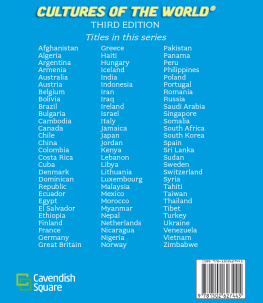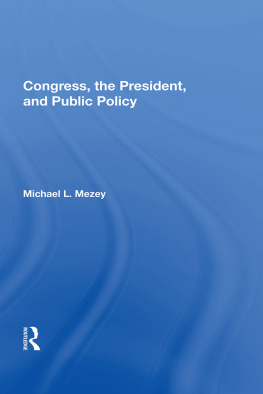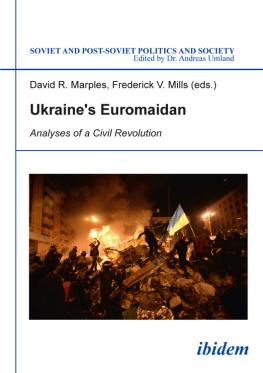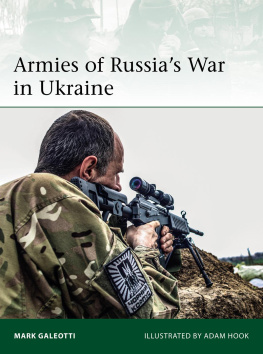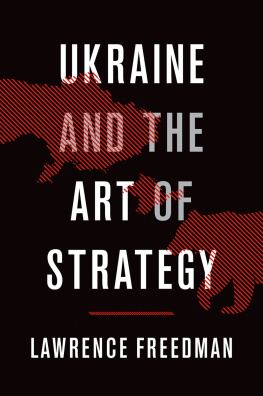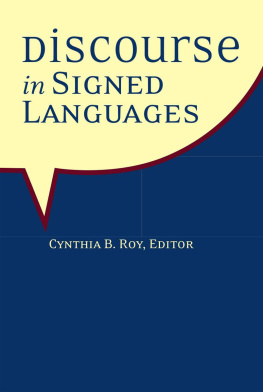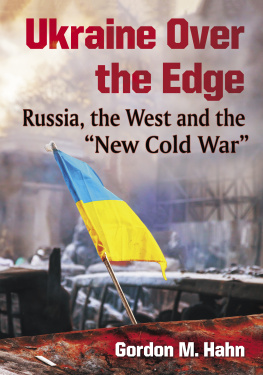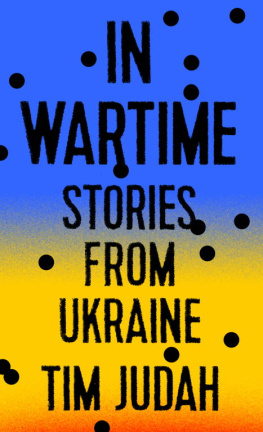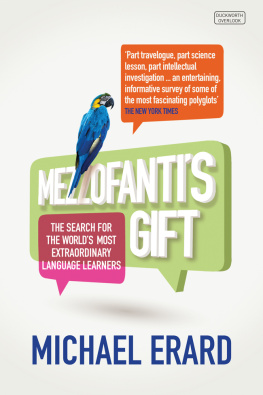ibidem Press, Stuttgart
Michael Moser has made a name for himself with his incisive and
multidimensional publications on the Ukrainian language, its speakers,
history, and the politics involved. Language having become the cornerstone
of nationhood and statehood in many areas of modern Europe, is a highly
politicized issue in independent Ukraine, bearing a salient imprint on Kyivs
foreign relations, especially with Russia. The monograph usefully chronicles
and analyzes the current Ukrainian administrations attempt at making the
country officially bilingual; de facto, with Russian accorded the privileged
language vis--vis Ukrainian relegated to the status of a minority language
a scenario already tried out in Belarus since 1995. The difference is that in
Ukraine it is happening with the curious employment of the Council of
Europes minority rights legislation.
Tomasz Kamusella,
Lecturer in Modern History, University of St. Andrews, Scotland
[] One ought to recognize that the present p olitical chaos is connected with the decay of language , [] and one can probably bring about some improvement by starting at the verbal end.
George Orwell , Politics and the English Language, 1946
Preface
It is highly unlikely that I would have begun working on this book if Lubor Matejko of Comenius University in Bratislava had not invited me to take part in a series of lectures devoted to modern Ukraine which also featured one on lan guage policy. As I had followed this subject and re viewed some books devoted to related issues over the years, I agreed to contribute an article in the immediate future. However, when I did so, I had no idea it would ultimately result in this mono graph. My special thanks thus go to Lubor Matejko.
As a Slavicist whose focus has clearly been on Ukrainian studies for more than a decade, I do of course have my own preferences regarding all topics addressed in this book. I did not try to hide such preferences, but as always, I did attempt to maintain a distance. I am perfectly aware of the fact that my book does not project a particularly positive image of the proponents for the rights of the Russian language in Ukraine and their actions, but I am convinced that this is not the result of my subjective attitudes or possible bias. To be sure, I do believe that the Russian language contributes to the linguistic wealth of Ukraine, but I do not think that the struggle for native Russian as currently practiced in Ukraine should be utilized to hamper the dissemination of Ukrainian as the state language. As in former times, the most active defenders of bilingualism in Ukraine usually do maintain the predominance and do contribute, in the long run, to the rise of Russian monolingualism .
In general, my outline is based on objective statistical data and ob jective news and interviews as well as draft laws on languages and their assess ments. With respect to statistics, I employed various data from different sociological groups based on my accessibility to them. For the most part, they provide a general overview. As for news based on politicians statements, I treated such information with utmost caution, largely confining myself to their direct quotations. As a result, I did not rely on any in ter pretations offered by reporters. For example, if in mid-March 2012 Russian and Ukrainian media reported that President Yanukovych had, during a visit to Russia, once again promised to establish Russian as the second state language of Ukraine (Yanukov i ch obe shch aet), it was immediately clear that some journalists had overinter pre ted Yanukovychs statements; the president had only r e peated ly promised to foster the Russian language in alleged accordance with the European Chart er for Regional or Minority Lan g u ages.
In this book, I did not attempt to provide a full picture of the language situation in Ukraine, nor a full assessment of the discourse on languages as practiced in Ukraine, nor a full report on Ukrainian lan guage policy under Viktor Yanukovych. I did , however , try to be a critical chronicler and observer of the events, being perfectly aware of the fact that presenting the full story is impossible by nature, as is objectivity. My focus is on language dis course in Ukraine and the political actions in the field of lan guage policy as practiced by the ruling political forces in Ukraine. I pay little attention to language discourse as practiced by the opposition parties, including those of the far-right.
An assessment of modern Ukrainian language policy should also consider the context of Russkiy Mir and official Russian statements and views on Ukraine, as well as the situation of Ukrainians in the Russian Federation. The significance of the Venice Commission and the OSCE have become widely known during the past two years, after both institutions offered assessments of the two most im port ant draft laws on languages as sub mitted under Viktor Yanukovychs presidency. Moreover, the European context is of crucial importance inasmuch as the European Charter for Regional or Minor ity Languages has exerted a major impact on all recent initiatives in the sphere of lan guage policy. It is unclear, however, what kind of regulations this document truly entails for Ukraine. Furthermore, not everyone is aware that the protection of the Russian language in Ukraine according to the Charter is at least dubious not so much because the Charter has primarily been issued for the pro tection of endangered languages, but because the Russian language in Ukraine simply does not meet the criteria of a regional or minority language as defined by the Charter.
In order to maintain the greatest possible distance from mere politics, I included the names of opposition leaders only when I found this absolutely necessary, yet excluded any reference to their party affiliation. Nonetheless, as I am convinced that actions in the sphere of contemporary language policy cannot be understood in full isolation from the broader picture, the book is at times inevitably political in nature.
While I was working on this book, some friends and acquaintances had con stant ly been for warding valuable information to me. First and foremost, these include Roman Senkus of the Toronto branch of the Canadian Institute of Ukrainian Studies and, during the last months of my work, Marusia Petryshyn of the Canadian Institute of Ukrainian Studies in Edmonton (and her study group on Ukrainian language legislation). I have also received valuable materials from Natalia Khobzey of the Ivan Krypiakevych Institute of Ukrainian Studies in Lviv, Ukraine and Serhiy Vakulenko of the Hryhoriy Skovoroda Pedagogical University in Kharkiv, Ukraine.
My special thanks go to Roman Procyk of New York and Tomasz Kamusella of St. Andrews, Scotland, UK, who offered particularly valuable feedback to earlier versions of this book.
Also, I would like to express my gratitude to the Ukrainian Studies Fund and its benefactor, Arkadi Mulak-Yatzkivsky, who have supported my effort to publish this study on the occasion of the 150th anniversary of the Valuev Circular (1863) and who have generously sponsored this publication .
Last but not least, I would like to sincerely thank Illya M. Labunka for making my English considerably more readable.
Finally, I should add that when the manuscript was already completed, one day prior to the Ukrainian parliamentary elections of 28 October 2012, I received a forthcoming article from Juliane Besters-Dilger of the University of Freiburg (Besters-Dilger Prfstein), whichnot surprisinglyoffers observations and conclusions similar to those suggested in this work.
Although at first glance the topic of this book might seem to stand apart from the theme of my START project 1000 Years of Ukrainian Language History in Galicia , I do regard this mono graph as a supplementary contribution to this project. Not only does Galicias specific role in the protection of the Ukrainian language in Ukraine figure prominently in the book, so too does the notorious anti-Galician discourse which is frequent ly practiced in contemporary pro paganda against the Ukrainian language and identity. As always, however, not only Galicias input is of concern here. I am convinced that Ukrainian language policy and the discourse on languages as analyzed in this book are of great importance not only for Ukraine, but ultimately for Europe as a whole.


